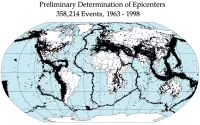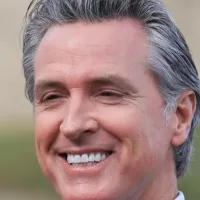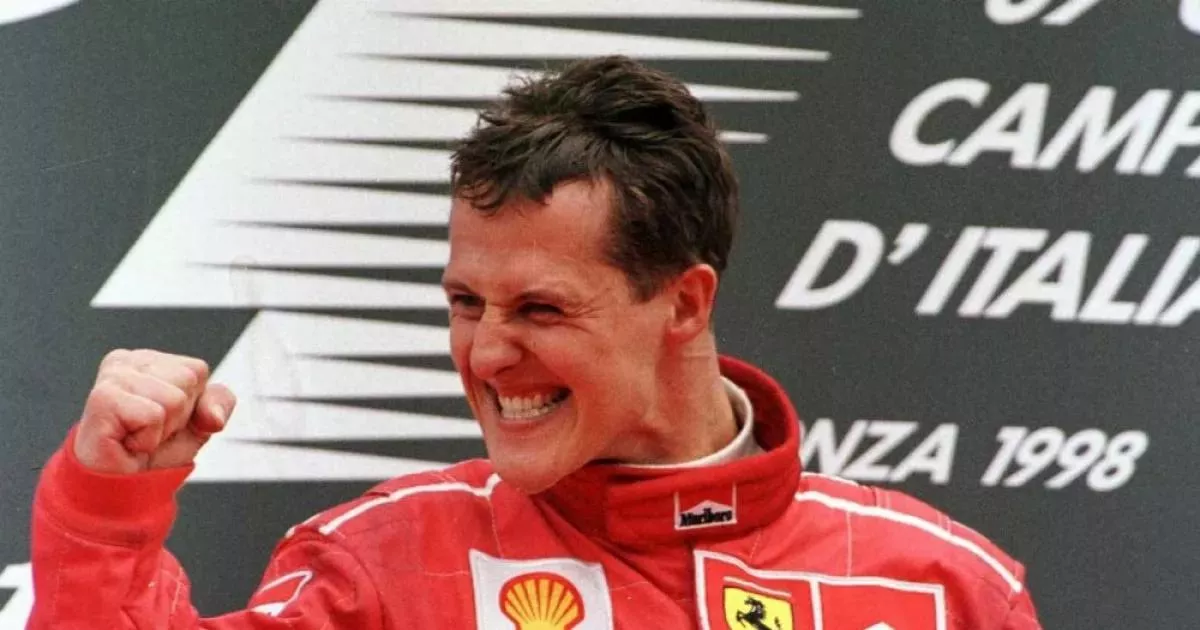A success timeline featuring the most significant achievements of Michael Schumacher.
Michael Schumacher is a retired German Formula One racing driver, widely regarded as one of the greatest of all time. He holds a joint record of seven Formula One World Drivers' Championship titles. He dominated the sport for over a decade, primarily with Benetton and Ferrari. At the time of his retirement, he held numerous records, including most wins, pole positions, and podium finishes, although many have since been surpassed. He still holds the record for the most fastest laps. His career spanned from 1991 to 2006 and 2010 to 2012.
1970: Oldest Driver Since 1970
In 2011, Michael Schumacher became the oldest driver to lead a race since Jack Brabham in 1970.
1979: Ferrari's first Drivers' Championship since 1979
Michael Schumacher beat Mika Häkkinen for his first World Championship at Ferrari and the team's first Drivers' Championship since the 1979 season.
1987: Karting European Championship win
In 1987, Michael Schumacher won the direct-drive Karting European Championship, marking a significant achievement in his early racing career.
1990: Ferrari 1-2 Finish
In 1998, Ferrari took a 1–2 finish at the French Grand Prix, the first Ferrari 1–2 finish since 1990, and at the Italian Grand Prix, which tied Schumacher with Häkkinen for the lead of the Drivers' Championship with 80 points.
1992: First Podium and Victory
In 1992, Michael Schumacher achieved his first podium finish at the Mexican Grand Prix and his first victory at the Belgian Grand Prix, driving the Benetton B192.
1992: ONS Cup Award
In 1992, the German Motor Sport Federation awarded Michael Schumacher the ONS Cup, the highest accolade in German motorsport.
1993: Bambi Award (Sports) and Golden Steering Wheel
In 1993, Michael Schumacher won a Bambi Award (Sports) and was the first racing driver to receive the Golden Steering Wheel.
1993: Victory at Portuguese Grand Prix
In 1993, Michael Schumacher won one race, the Portuguese Grand Prix where he beat Alain Prost, and had nine podium finishes. He finished the season in fourth.
1994: Won First Drivers' Championship
In 1994, Michael Schumacher driving the Benetton B194, won his first Formula One World Championship. He won the first four races and finished the season with eight wins. During the Spanish Grand Prix, a gearbox failure left him stuck in fifth gear for most of the race, yet he managed to finish in second place.
1994: First Formula One World Drivers' Title
In 1994, Michael Schumacher won his first Formula One World Drivers' Championship with Benetton.
1994: ONS Cup Award and European Sportsperson of the Year
In 1994, Michael Schumacher won the ONS Cup for the second time and was voted European Sportsperson of the Year by the International Sports Press Association.
1995: Youngest Back-to-Back World Champion
In 1995, Michael Schumacher became the youngest back-to-back World Champion at the time.
1995: Second Formula One World Drivers' Title
In 1995, Michael Schumacher won his second consecutive Formula One World Drivers' Championship with Benetton.
1995: ONS Cup Award, German Sportspersonality of the Year, and Autosport International Racing Driver of the Year
In 1995, Michael Schumacher won the ONS Cup, was named German Sportspersonality of the Year, and was named Autosport International Racing Driver of the Year.
1995: Schumacher defended title with Benetton
In 1995, Schumacher successfully defended his title with Benetton, which now had the same Renault engine as Williams. He accumulated 33 more points than second-placed Hill. With Herbert as teammate, he took Benetton to its first Constructors' Championship, breaking the dominance of McLaren and Williams, and became the youngest two-time World Champion in Formula One history.
1995: Dominating the 1995 World Championship
Michael Schumacher dominated the 1995 World Championship.
1996: Spain victory in the rain
In 1996, Michael Schumacher notably won the Spain race in the rain, showcasing his exceptional ability in wet conditions.
1996: Third in Drivers' Championship
In 1996, Schumacher finished third in the Drivers' Championship and helped Ferrari to second place in the Constructors' Championship ahead of his old team Benetton. He won three races, more than the team's total tally for the period from 1991 to 1995, despite a poor chassis.
1997: Silbernes Lorbeerblatt
In 1997, For his sports achievements and his commitment to road safety, Schumacher was awarded Germany's highest sporting accolade, the Silbernes Lorbeerblatt.
1999: Highest Paid Athlete by Forbes
In 1999, Forbes magazine listed Michael Schumacher as the highest paid athlete in the world.
1999: Ferrari won Constructors' Championship; Schumacher's accident at British Grand Prix
In 1999, Schumacher contributed to Ferrari winning the Constructors' Championship, their first since 1983. At the British Grand Prix, a rear brake failure caused a crash, resulting in a broken leg and a 98-day absence, where he was replaced by Mika Salo. Upon his return at the Malaysian Grand Prix, he qualified in pole position and then supported Eddie Irvine's championship bid.
2000: Autosport International Racing Driver of the Year
From 2000 to 2002, Michael Schumacher was named Autosport International Racing Driver of the Year.
2000: Highest Paid Athlete by Forbes
In 2000, Forbes magazine listed Michael Schumacher as the highest paid athlete in the world.
2000: Third Formula One World Drivers' Title
In 2000, Michael Schumacher and Ferrari won the Formula One World Drivers' Championship, beginning a streak of five consecutive titles.
2000: Schumacher wins his third Drivers' Championship with Ferrari
In 2000, Michael Schumacher secured his third Drivers' Championship and his first with Ferrari, after a season-long competition with Mika Häkkinen. He won the first three races and a total of five of the first eight. Despite some setbacks mid-season, Schumacher clinched the championship at the Japanese Grand Prix. He later described it as the fight of his life.
2001: European Sportsperson of the Year
From 2001 to 2003, Michael Schumacher was voted European Sportsperson of the Year by the International Sports Press Association and by Polish Press Agency.
2001: Consecutive Podium Finishes
In 2001, Michael Schumacher began a streak of 19 consecutive podium finishes, as well as starting a streak of 24 consecutive race finishes and points finishes.
2001: Marca Leylenda award, L'Équipe Champion of Champions, Gazzetta World Sports Award
In 2001, Michael Schumacher received the Marca Leylenda award, was named L'Équipe Champion of Champions, and won the Gazzetta World Sports Award.
2001: Schumacher wins his fourth Drivers' title
In 2001, Schumacher secured his fourth Drivers' title. He achieved a record-tying nine wins and clinched the championship with four races remaining. He finished with 123 points, 58 ahead of Coulthard. Highlights included winning the Spanish Grand Prix after Häkkinen's retirement, finishing second to his brother Ralf at the Canadian Grand Prix, and breaking Alain Prost's record at the Belgian Grand Prix.
2001: Dominating the 2001 World Championship
Michael Schumacher dominated the 2001 World Championship.
2002: Dominant season in 2002
In 2002, Michael Schumacher had 17 podium finishes in a season and won the championship with six races left, also achieving 19 consecutive podium finishes dating back to 2001.
2002: UNESCO Champion for Sport
In 2002, Michael Schumacher was appointed UNESCO Champion for Sport due to his involvement in humanitarian projects and charitable donations.
2002: Laureus World Sportsman of the Year
In 2002, Michael Schumacher won the Laureus World Sportsman of the Year award.
2002: ONS Cup Award and UNESCO Champion for Sport
In 2002, Michael Schumacher won the ONS Cup and was named as one of the UNESCO Champions for Sport.
2002: World Championship win in 2002
In 2002, Michael Schumacher won the World Championship with six rounds to spare, which was earlier in the year than anyone before him (21 July).
2002: Schumacher retains his Drivers' Championship, equaling Fangio's record
In 2002, Schumacher retained his Drivers' Championship, equaling Juan Manuel Fangio's record of five World Championships. Ferrari won 15 out of 17 races, and Schumacher clinched the title with six races remaining. He broke his own record with 11 race wins and finished every race on the podium, ending with 144 points, 67 ahead of Barrichello.
2002: Dominating the 2002 World Championship
Michael Schumacher dominated the 2002 World Championship, driving what was considered the clear-cut fastest car with teammate Barrichello as runner-up.
2003: European Sportsperson of the Year
From 2001 to 2003, Michael Schumacher was voted European Sportsperson of the Year by the International Sports Press Association and by Polish Press Agency.
2003: Consecutive Race Finishes
In 2003, Michael Schumacher continued a streak of 24 consecutive race finishes, which had begun in 2001.
2003: L'Équipe Champion of Champions, Lorenzo Bandini Trophy
In 2003, Michael Schumacher was named L'Équipe Champion of Champions and won the Lorenzo Bandini Trophy.
2003: Schumacher's performance in wet races
In 2003, Motor Sport author Christopher Hilton observed Michael Schumacher's exceptional performance in wet races, highlighting his car control and sensitivity. Up to the end of 2003, Schumacher had won 17 of the 30 races contested in wet conditions, earning nicknames like "Regenkönig" and "Regenmeister."
2003: Schumacher wins his sixth Drivers' Championship
In 2003, Schumacher secured his sixth Drivers' Championship after a closely contested battle. New regulations and a points system made the championship more competitive. He won the San Marino Grand Prix despite personal loss and faced strong competition from Räikkönen and Montoya. At the Japanese Grand Prix, he finished eighth, securing the one point needed to win the title.
2003: Winning the 2003 World Championship
Michael Schumacher won the competitive 2003 World Championship.
August 2004: Ferrari's sixth consecutive Constructors' Championship
In August 2004, Schumacher's victory at the Hungarian Grand Prix secured Ferrari's sixth consecutive Constructors' Championship. He later clinched his seventh Drivers' Championship at the Belgian Grand Prix.
2004: Records broken in 2004
In 2004, Michael Schumacher achieved numerous records including consecutive wins (7), wins in a season (13), fastest laps in a season (10), points scored in a season (148).
2004: Seventh Formula One World Drivers' Title
In 2004, Michael Schumacher and Ferrari secured their fifth consecutive title, giving Schumacher his unprecedented seventh Formula One World Drivers' Championship.
2004: Laureus World Sportsman of the Year
In 2004, Michael Schumacher won the Laureus World Sportsman of the Year award.
2004: Dominating the 2004 World Championship
Michael Schumacher dominated the 2004 World Championship, with teammate Barrichello as runner-up.
2004: German Sportspersonality of the Year and Greatest Sportsperson of the 20th Century
Michael Schumacher was voted German Sportspersonality of the Year in 2004 and was voted Germany's greatest sportsperson of the 20th century.
2005: World's First Billionaire Athlete and Powerful Celebrity
In 2005, EuroBusiness magazine identified Schumacher as the world's first billionaire athlete. Also in 2005, Forbes ranked him 17th in its "The World's Most Powerful Celebrities" list.
2006: Schumacher's last season with Ferrari, wins and retirement announcement
2006 marked Schumacher's final season with Ferrari. After a slow start, he won several races, breaking Senna's pole position record. He was stripped of pole position at the Monaco Grand Prix. Schumacher announced his retirement after winning the Italian Grand Prix. Later, he secured his 91st and final career win at the Chinese Grand Prix, leading the championship standings. Ferrari issued a press release stating that Schumacher would retire from racing at the end of the 2006 season but would continue working for the team.
2006: FIA Gold Medal for Motor Sport, Lifetime Achievement Award
In 2006, Michael Schumacher was awarded an FIA Gold Medal for Motor Sport and received a "Lifetime Achievement Award" presented by Pelé.
2006: Leading a race since 2006
In 2011, at the Japanese Grand Prix, Michael Schumacher lead three laps during the race, marking the first time since 2006 that he had led a race.
2006: Most popular driver of the season in 2006
In a 2006 FIA survey, Michael Schumacher was voted the most popular driver of the season among Formula One fans.
2007: Prince of Asturias Award for Sport, Race of Champions Nations' Cup
In 2007, Michael Schumacher received the Prince of Asturias Award for Sport and together with Sebastian Vettel, won the Race of Champions Nations' Cup for Germany.
December 2009: Return to Formula One with Mercedes
In December 2009, Michael Schumacher announced his return to Formula One for the 2010 season with the new Mercedes GP team, marking Mercedes' return to the sport as a constructor since 1955. He cited a renewed interest and the opportunity to work with Ross Brawn as reasons for his return.
2011: First Points Since Return
In 2011, Michael Schumacher scored his first points since his Formula One return at the Malaysian Grand Prix where he finished ninth. He also finished sixth in Spain and fourth at the Canadian Grand Prix, seen as his most convincing performance since his comeback.
2012: Podium Finish at the European Grand Prix
In 2012, Michael Schumacher finished third at the European Grand Prix, his only podium finish since his return to Formula One. He became the oldest driver to achieve a podium since 1970, at 43 years and 173 days old.
2012: Race of Champions Nations' Cup
In 2012, Michael Schumacher, together with Sebastian Vettel, won the Race of Champions Nations' Cup for Germany.
2017: Fifth Highest Career Earnings
In 2017, Forbes designated Schumacher as the athlete with the fifth highest career earnings of all-time.
2017: Induction into FIA Hall of Fame and Germany's Sports Hall of Fame
In 2017, Michael Schumacher was inducted into the FIA Hall of Fame and Germany's Sports Hall of Fame.
2020: FIA President Award
In 2020, Jean Todt honored Michael Schumacher with the FIA President Award.
2020: Most influential person in Formula One history in 2020
In 2020, Michael Schumacher was voted the most influential person in Formula One history.
2022: State Prize of North Rhine-Westphalia
In 2022, Michael Schumacher was awarded the State Prize of North Rhine-Westphalia.
Mentioned in this timeline
Germany officially the Federal Republic of Germany is a nation...

Lewis Hamilton is a British Formula One racing driver currently...

An earthquake is the shaking of the Earth's surface caused...

A tank is an armored fighting vehicle designed for front-line...

Football is a family of team sports primarily involving kicking...
Monaco officially the Principality of Monaco is a sovereign city-state...
Trending

15 minutes ago Dewald Brevis Hits Remarkable No-Look Six in T20 World Cup 2026

15 minutes ago Alejandro Tabilo reaches Rio Open Semi-Finals; match delayed to Sunday due to rain.
15 minutes ago Cale Makar's Norris Trophy Reign Challenged by American Defenders in NHL Rankings.
16 minutes ago Mark Scheifele Visits Penticton Vees, Hellebuyck Focuses on Olympics Despite NHL Woes

16 minutes ago Newsom supports age restrictions on social media citing parental experience and teen phone obsession.

16 minutes ago US pays tribute to Johnny and Matthew Gaudreau at the Winter Olympics.
Popular

Jesse Jackson is an American civil rights activist politician and...

Barack Obama the th U S President - was the...

Bernie Sanders is a prominent American politician currently serving as...

Ken Paxton is an American politician and lawyer serving as...

Michael Joseph Jackson the King of Pop was a highly...
WWE Raw a professional wrestling television program by WWE airs...
